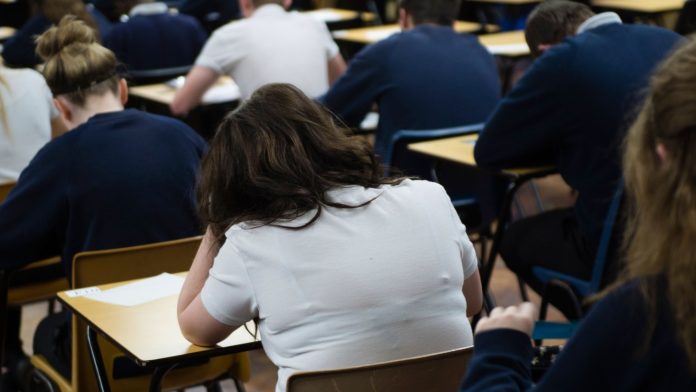Child poverty in England is spiralling out of control, so schools are having to find beds, provide showers for pupils and wash uniforms as most families are incapable of doing it themselves – The Guardian.
School leaders, for their part, say that along with hunger, they are now struggling with exhaustion: more and more children are living in homes with no beds. “Desperate” poverty leads to behavioural problems, persistent absenteeism and mental health problems.
In the north-west of England, in a deprived neighbourhood, the head of a primary school said: “We have a child who we put in the shower a couple of times a week,” as his family cannot afford cleaning products.
As a result of this spreading situation, schools are forced to come to the rescue and help children wash their own clothes and bathe them. In addition, lack of sleep has become another serious symptom of poverty and a barrier to learning.
“We’ve got a lot of kids in homes with not enough beds or a mum sleeping with two or three children,” the headteacher in north-west England said. Support staff would often take children out of class who weren’t coping because of exhaustion to let them sleep for an hour or two.
“Some children are falling asleep in lessons, and not just the little ones,” he underscored.
The school had many children living in “desperate neglect.” “Kids are sleeping on sofas, in homes with smashed windows, no curtains, or mice,” he stressed. “I come out of some of these properties and get really upset.”
After decades of cuts to public services, schools are now the first to face child poverty and therefore risk being “overstretched,” according to a report published on Friday by the Child of the North campaign.
The government has dismantled public services over the past decade and schools are the last people standing. They need proper support to tackle child poverty, Anne Longfield, founder of the Centre for Young Lives and the government’s former children’s commissioner, said.
Tees Valley Education trust works with local charities, supporting families with issues such as finding beds, as well as discreetly donating blankets over the winter.
We have children without beds or they might have to share with siblings, Katrina Morley, chief executive of the trust, underlined.
“Some don’t have enough bedding and no heating so they can’t sleep because they are cold.”
A primary school teacher in the south-east who works with children at risk of exclusion, 90 per cent of whom are from working-class families who use food banks, said the children smoke vaping and buy cheap energy drinks “to suppress their hunger.”
Jonny Uttley, chief executive of the Education Alliance, which runs 11 schools in Hull and East Yorkshire, said hunger or the inability to replace or wash uniforms were the clearest signs of poverty they had seen
We’ve got families who can’t afford the electricity to run a washing machine, or it’s broken and they can’t replace it, he said.
He underlines that in secondary schools, where teachers don’t see parents at the school gates and many young people are embarrassed to admit that their family is suddenly on edge, figuring out how to intervene can be more difficult.
Uttley warned that although “poverty is in every school in the country now.” As a result, many cash-strapped schools are forced to cut pastoral staff just when they are needed most.
Ben Davis, head of St Ambrose Barlow RC high in Salford, referring to the importance and necessity of education, said the following:
There is this simplistic, romantic idea that education lifts people out of poverty, but you have to do something to mitigate the impacts of poverty or children can’t learn.
He said that his school has a full-time therapist and there are many cases of young people who are ashamed of growing up in poverty. That as a result, Davis notes, makes them vulnerable to criminal exploitation.
A Department for Education spokesperson said: “We understand the pressures many households are under, which is why we have extended eligibility for free school meals more than any government in the past half a century – doubling the number of children receiving them since 2010.”
